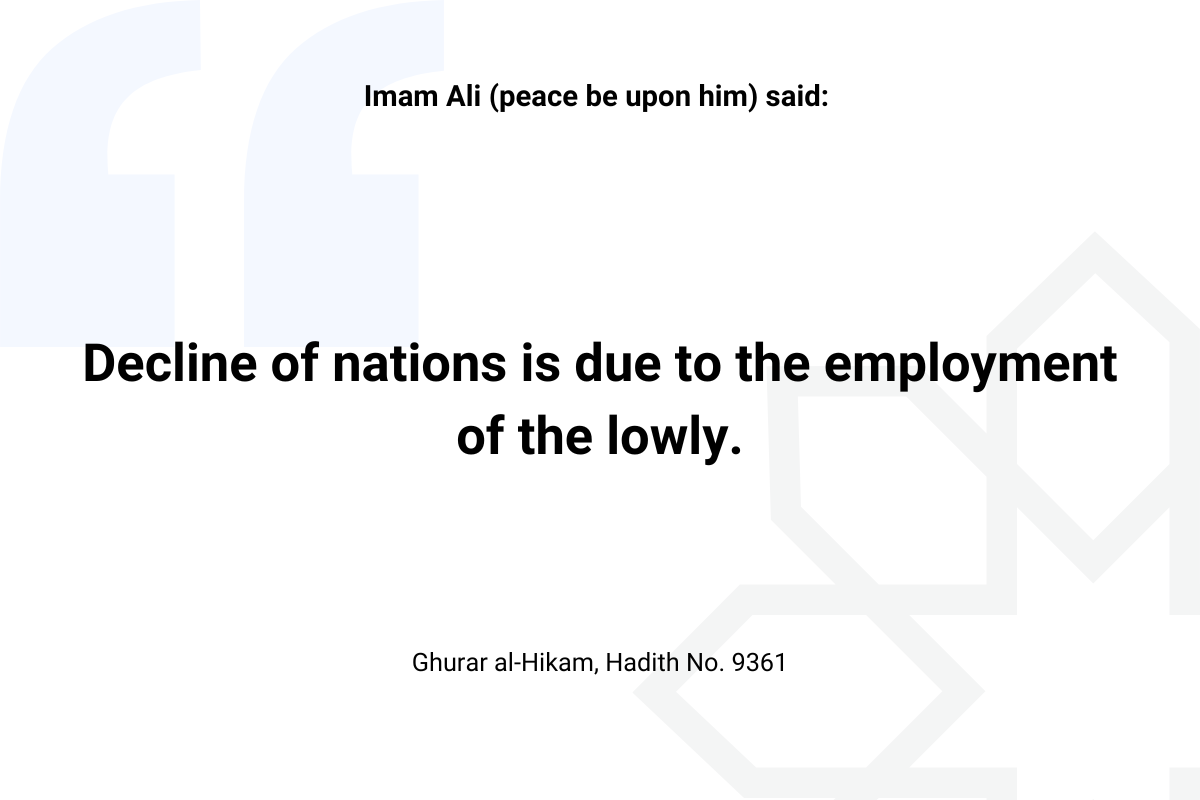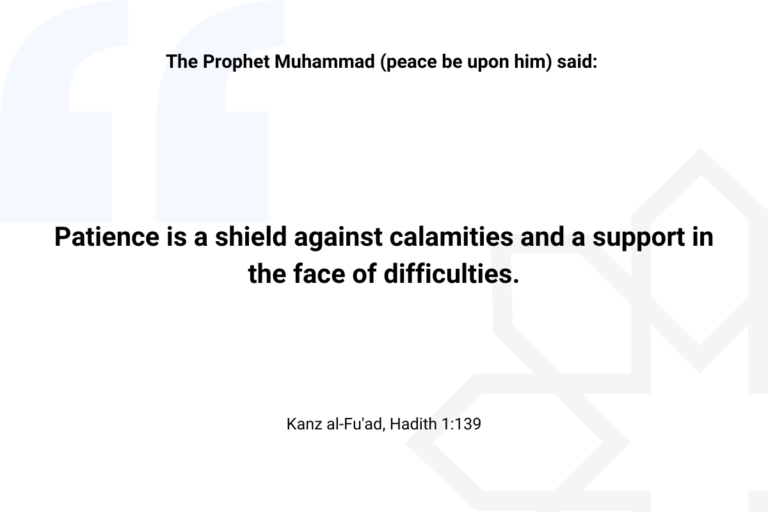Islamic Quote on Leadership and Governance
“Decline of nations is due to the employment of the lowly.”
Imam Ali (as), Ghurar al-Hikam, Hadith 5486
Introduction
In this profound Islamic quote, Imam Ali (as) highlights a critical aspect of governance and societal health. The employment of incompetent and morally corrupt individuals in positions of power leads to the downfall of nations. This hadith, sourced from Ghurar al-Hikam (Hadith 5486), serves as a timeless reminder of the importance of merit and integrity in leadership.
The Importance of Competence in Leadership
The Role of Competence in Governance
A nation’s prosperity and stability heavily depend on the competence of its leaders. Leaders who possess the necessary skills, knowledge, and moral integrity are more likely to make decisions that benefit the society as a whole. This idea is central to the Islamic hadith quoted above, emphasizing that the downfall of nations is often a result of appointing unworthy individuals to positions of authority.
Historical Examples of Competence in Leadership
Throughout history, numerous examples illustrate the importance of competent leadership. The Islamic Golden Age, for instance, was marked by leaders who valued knowledge, ethics, and skill, fostering advancements in science, philosophy, and the arts. Conversely, the decline of many empires can be traced back to the corruption and incompetence of their rulers.
Moral Integrity and Governance
The Ethical Dimension of Leadership
Imam Ali (as) not only stresses the importance of competence but also the moral character of those in power. Ethical leadership is crucial in maintaining the trust and support of the populace. Leaders who act with integrity inspire confidence and cooperation, which are essential for a stable and prosperous society.
The Consequences of Ethical Failures
The hadith also serves as a warning about the consequences of ethical failures in leadership. When those in power lack moral integrity, corruption and injustice become rampant, leading to societal decay and the eventual collapse of the state. This reinforces the need for leaders who are both competent and ethically sound.
Application of This Hadith in Contemporary Context
Leadership in Modern Times
In today’s world, the principles outlined in this Islamic quotation are as relevant as ever. Effective and ethical leadership is crucial in addressing contemporary challenges such as political instability, economic crises, and social unrest. By adhering to the wisdom of Imam Ali (as), modern societies can strive to cultivate leadership that promotes justice, competence, and moral integrity.
Building a Meritocratic Society
To prevent the decline mentioned in the hadith of the day, societies must prioritize meritocracy, ensuring that positions of power are awarded based on ability and character rather than favoritism or corruption. This approach can help in fostering an environment where good governance and ethical behavior are the norms.
Conclusion
The Islamic hadith from Imam Ali (as) encapsulates a fundamental truth about leadership and its impact on the fate of nations. By recognizing the importance of both competence and moral integrity in governance, societies can work towards building a future marked by stability and prosperity. This timeless wisdom remains a crucial guide for contemporary leaders and policymakers.
For more insightful Islam quotes, visit Islam Quotes.








